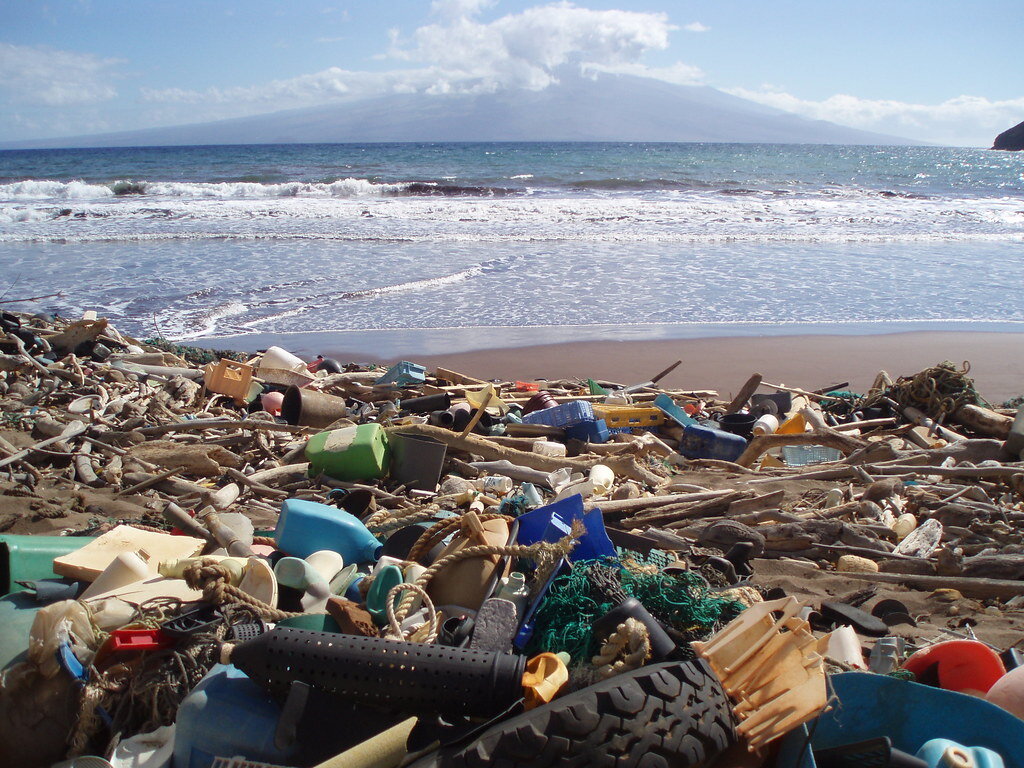Photo courtesy of Flickr.
By Siona Ahuja ’24
Staff Writer
In August 2006, a company hired by the commodity trading giant, Trafigura, offloaded large amounts of toxic waste into Abidjan, the economic center of the Ivory Coast, located on the south coast of West Africa. The vessel, the contents of which were rejected by many countries before being dumped on the Ivory Coast, was carrying 500 tons of fuel, caustic soda and hydrogen sulfide. As a result, 17 people died and thousands of locals in Abidjan contracted severe health problems with reported symptoms of burning skin and difficulty breathing. To this day, people report various skin and eye problems that they believe are related to the 2006 dumping incident.
This incident is not an isolated one. Developed nations have been dumping their waste into the landfills of developing countries for decades, and have continued to do so even after economically developed countries tightened legislation surrounding waste disposal methods in the 1980s. This exploitative practice has been termed “waste colonialism.”
The primary reason why developed nations export their waste lies in the development process itself. Countries in the Global North produce hazardous substances through industrialization. Environmental justice scholars opine that reckless consumption patterns and the “rapid obsolescence of products” has led to overconsumption and large amounts of waste in the Global North while the landfills of the Global South end up paying the price, according to an article in the journal International Environmental Agreements: Politics, Law and Economics.
The import countries, many of them in Africa or the Asia-Pacific region, lack the infrastructure required for proper waste management and recycling. Such mechanisms are scant and concentrated only in urban areas, which means that large rural parts of these countries dispose of imported garbage into landfills or incinerators. Organic pollutants poison areas surrounding landfills, producing fatal hazards for local wildlife and ecosystems. The toxic waste also permeates the soil, which can contaminate groundwater and crops that humans ingest, resulting in detrimental effects like cancers, diabetes, bone disease, kidney damage and liver damage. Incinerating waste releases harmful chemicals such as lead and mercury into the air. Not only does inhaling these fumes cause severe respiratory problems, but these elements are potentially carcinogenic. More than 2 billion tonnes of non-hazardous waste is generated globally, and this number is projected to increase by 19 percent in the Global North and 40 percent in the Global South by 2050.
To combat this exploitation, the Basel Convention on the Control of Transboundary Movements of Hazardous Wastes and Their Disposal, known as the Basel Convention, was set up by the United Nations in 1989. The Basel Convention seeks to establish secure standards for the transnational movement of hazardous waste. In 1995, the signatories adopted an amendment called the Basel Ban which prohibits the transfer of hazardous waste materials from developed to developing countries. The United States, one of the worst global offenders of waste production, has not yet ratified the Basel Convention so it is not legally binding.
Even for member-states who have ratified it, there are significant legal loopholes that pose challenges to its goals. There is ambiguity in defining non-hazardous and hazardous waste along with what constitutes waste and non-waste. This creates a plethora of opportunities for member-states to escape the stringent controls of the Basel Convention.
Until two years ago, China imported almost half of the world’s plastic waste. This ended in January 2018 when the country ceased all imports of scrap plastics and other wastes according to its “National Sword” policy, overflowing the warehouses in the U.S., Canada and Australia and leading to an estimated displacement of 111 million metric tons of plastic by 2030. Instead of improving systems and managing their wastes internally, developed nations redirected their exports to Malaysia, Vietnam and Thailand, to name a few.
Managing imported waste also adds to the pile of domestic concerns developing nations face which include overpopulation, inconsistent economic growth and present pollution problems. This creates a vicious cycle of developed nations treating developing nations as their dumping grounds and then chiding them for mismanaging their garbage. This colonial mindset was exemplified when the American-based environmental nongovernmental organization Ocean Conservancy released a report in 2015 regarding solutions to marine plastic pollution. One of the core suggestions was for Southeast Asian countries to collaborate with foreign-funded companies to build incinerators and burn their plastic waste. This recommendation was vehemently opposed by the Philippines branch of the Global Alliance for Incinerator Alternatives, which stated the effects of incinerating waste on the environment and health, especially in countries like China that are combating severe pollution.
No amount of policy changes and international assistance is likely to make a difference if the Global North refuses to make a radical reduction in the production and usage of materials. “Disposable plastics are simply not possible without colonizer access to land. The end of colonialism will result in the end of plastic disposability,” wrote Dr. Max Liboiron, an assistant professor of geography at Memorial University, in an op-ed for Teen Vogue.

